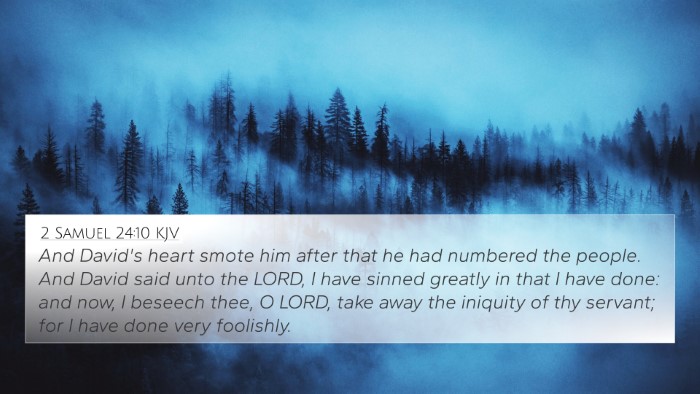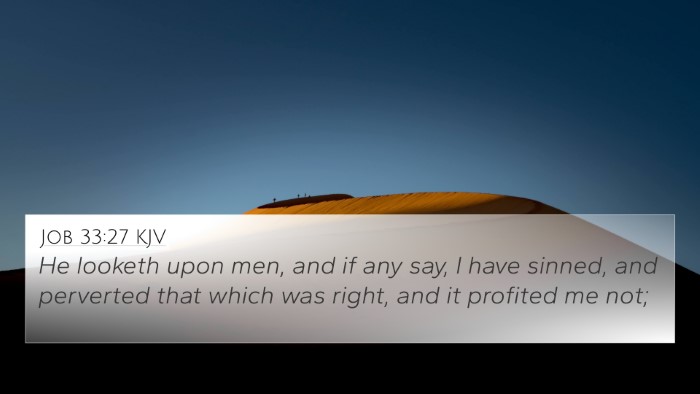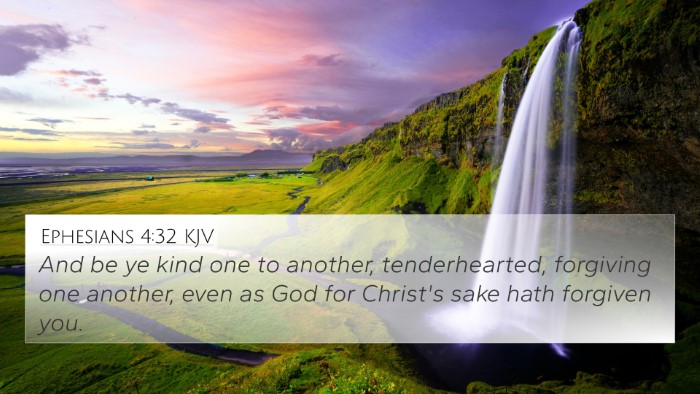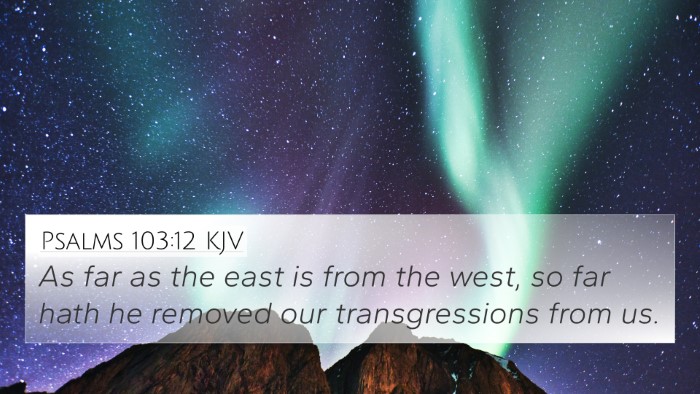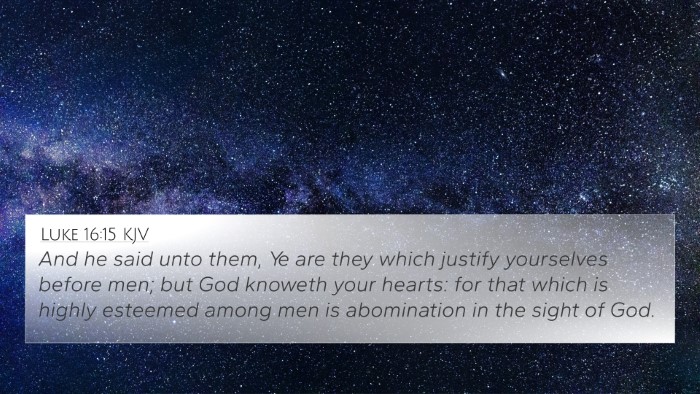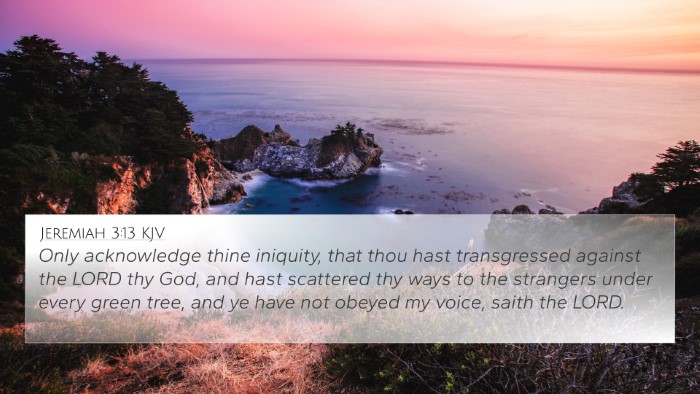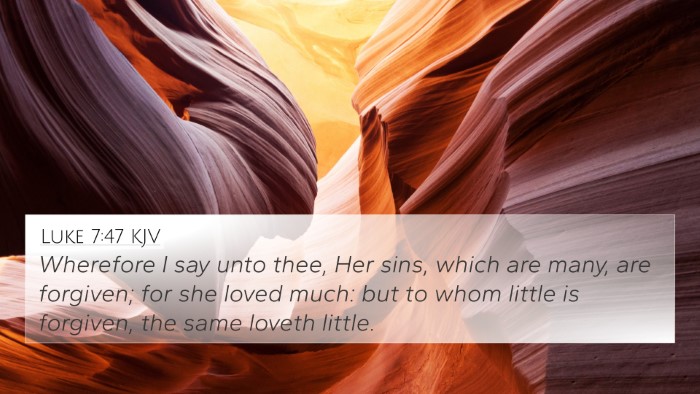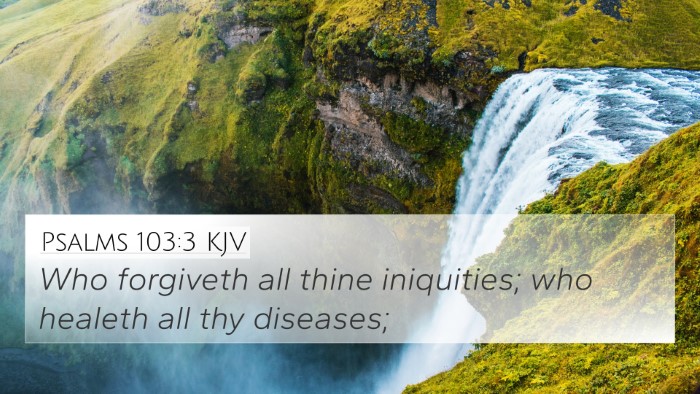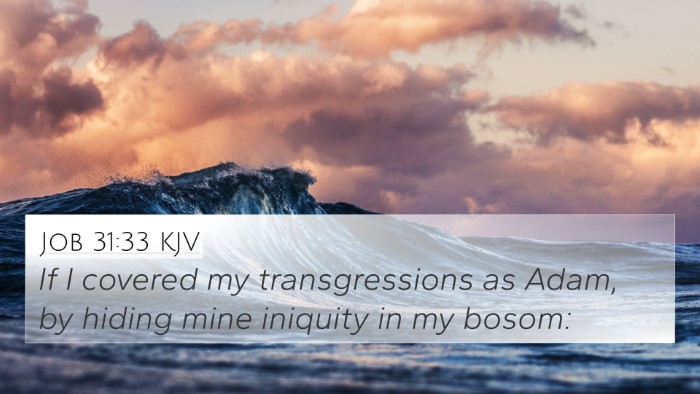Psalms 32:5 - Summary of Meaning and Interpretations
Psalms 32:5 states: "I acknowledged my sin unto thee, and mine iniquity have I not hid. I said, I will confess my transgressions unto the LORD; and thou forgavest the iniquity of my sin." This verse encapsulates the act of confession, God's forgiveness, and the transformation that comes through recognizing one’s wrongs.
Interpretative Insights from Public Domain Commentaries
Using insights from Matthew Henry, Albert Barnes, and Adam Clarke, we can appreciate the depth of this verse as it relates to themes of sin, confession, and redemption.
Matthew Henry's Commentary
Matthew Henry emphasizes the importance of acknowledging sin openly before God. He points out that this acknowledgment is vital for spiritual healing. When we hide our sins, we burden our hearts; however, bringing them to light leads to God’s forgiveness. Henry notes the specific nature of David’s confession, highlighting that true repentance involves not just general admissions of wrongdoing, but a heartfelt and honest disclosure of our iniquities.
Albert Barnes' Commentary
Albert Barnes elaborates on the relationship between sin and confession. He states that confession is a step towards liberation and peace, indicating that we are all in need of mercy. Barnes emphasizes that God's forgiveness requires human acknowledgment of sin and a willing heart to turn from those ways. He contrasts the outcomes of hiding sin with the peace that confession brings, aligning David’s experience with that of believers today.
Adam Clarke's Commentary
Adam Clarke contextualizes this verse by discussing the psychological state that accompanies guilt. He asserts that David, after grappling with his transgressions, ultimately recognized the futility of hiding his sins. Clarke explains that confessing to the Lord is essential for a relationship with God. He further highlights how this acknowledgment fosters a deeper understanding of God’s grace and mercy.
Thematic Connections and Cross-Referencing
Understanding Psalms 32:5 involves exploring connections with other Biblical texts that resonate with themes of confession, forgiveness, and restoration. Below are several relevant Biblical cross-references that deepen the interpretation of this verse:
- 1 John 1:9: "If we confess our sins, he is faithful and just to forgive us our sins and to cleanse us from all unrighteousness." This verse reinforces the promise of God's forgiveness upon confession.
- Proverbs 28:13: "He that covereth his sins shall not prosper: but whoso confesseth and forsaketh them shall have mercy." This highlights the importance of confession for receiving mercy.
- Psalm 51:1-2: "Have mercy upon me, O God, according to thy lovingkindness: according unto the multitude of thy tender mercies blot out my transgressions. Wash me thoroughly from mine iniquity, and cleanse me from my sin." This psalm reflects spiritual contrition and the desire for cleansing.
- James 5:16: "Confess your faults one to another, and pray one for another, that ye may be healed." This emphasizes community confession and healing.
- Isaiah 1:18: "Come now, and let us reason together, saith the LORD: though your sins be as scarlet, they shall be as white as snow; though they be red like crimson, they shall be as wool." This showcases God’s willingness to forgive and purify.
- Matthew 11:28: "Come unto me, all ye that labour and are heavy laden, and I will give you rest." Inviting the weary to find rest in Him mirrors the relief that comes from confessing one's burdens.
- Luke 15:21-24: The Parable of the Prodigal Son highlights the theme of confession and the joy of restoration when returning to the Father.
The Importance of Cross-Referencing
Utilizing a Bible cross-reference guide can enhance your understanding of how various scriptures are interlinked. Cross-referencing offers a framework for deeper study, allowing the believer to see patterns and themes that run throughout the Bible.
When examining bible verses that relate to each other, consider the broader themes of confession and forgiveness. This verse serves as a rich starting point for those seeking comprehensive Bible study methods focused on repentance.
Tools for Bible Cross-Referencing
Engaging with tools for Bible cross-referencing, such as a Bible concordance or a Bible cross-reference system, can be invaluable for believers seeking clarity and insight. Understanding how to use Bible cross-references can reveal layers of meaning and connection that deepen one's faith and knowledge of scripture.
Conclusion
Psalms 32:5 calls us into a relationship with God marked by honesty and repentance. By recognizing our sins and confessing them, we not only find forgiveness but we are also invited into a transformative relationship. With a thorough understanding of the scriptures through cross-referencing, believers can appreciate the interconnectedness of God's Word, and the overarching themes of grace and redemption found throughout the Bible.






